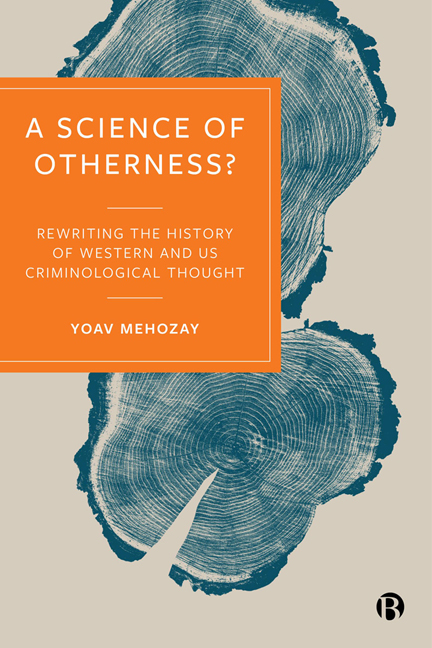Book contents
- Frontmatter
- Dedication
- Contents
- Acknowledgements
- 1 Introduction: Criminology as Otherness?
- 2 The Classical School: Otherness as an Ideology of an Imaginary Bourgeois Society
- 3 The Early Days of Positivist Criminology: An Ideology of Universalism and Otherness
- 4 Two Versions of Otherness: Between Eugenics and Modernization Theory
- 5 Otherness as Subculture
- 6 Managing the Other: Otherness in Practice
- 7 Conclusion: A Science of Otherness?
- Notes
- References
- Index
2 - The Classical School: Otherness as an Ideology of an Imaginary Bourgeois Society
Published online by Cambridge University Press: 27 March 2024
- Frontmatter
- Dedication
- Contents
- Acknowledgements
- 1 Introduction: Criminology as Otherness?
- 2 The Classical School: Otherness as an Ideology of an Imaginary Bourgeois Society
- 3 The Early Days of Positivist Criminology: An Ideology of Universalism and Otherness
- 4 Two Versions of Otherness: Between Eugenics and Modernization Theory
- 5 Otherness as Subculture
- 6 Managing the Other: Otherness in Practice
- 7 Conclusion: A Science of Otherness?
- Notes
- References
- Index
Summary
The founding fathers of the classical school in criminology never saw themselves as contributing to a new discipline, or even to a distinct field of research. For them, their work on criminal jurisprudence and penal reform always took place in a much grander context: producing a body of work to support profound institutional reform, with the ultimate end of helping engineer a good modern state. Indeed, the classical school has had a lasting influence on criminal law and penal practices. Yet no one can deny its paramount contribution to criminological thought. It is one of the pillars of the discipline of criminology, and guaranteed to appear in any textbook or introductory course on the subject. Moreover, its ideas remain influential, particularly its philosophy of crime, which served as the foundation of the neoclassical school that emerged in the late 1960s, and which continues to inform contemporary criminological theories such as situational crime prevention.
A great deal has been written on the classical school, and I shall not attempt to cover this literature in its entirety. This chapter aims, rather, to locate the role of the classical school in the history of knowledge production within the multifaceted field of criminology. First, I wish to rethink its position vis-à-vis the positivist school. Was the transition from the classical school to the positivist school a paradigm shift? Or can we also recognize some shared conceptions and, as such, some continuity between them? Mainly, however, I wish to inquire into the classical school’s ideological core, whether manifest or hidden. I consider in what ways this school serves an ideology of social control. What type of social regime does it support? How do its cultural and philosophical notions inform this type of criminological understanding? What was the socio-political and socio-economic context in which such penal knowledge was produced? And if this knowledge indeed helped shape a regime of social control, who did this change benefit? In this respect, the chapter traces the ways in which the classical school builds a narrative of responsibilization, classical responsibilization if you will, which places responsibility for crime on individuals and not on social conditions, and on this basis justifies state violence in a penal guise.
- Type
- Chapter
- Information
- A Science of Otherness?Rereading the History of Western and US Criminological Thought, pp. 21 - 41Publisher: Bristol University PressPrint publication year: 2023



